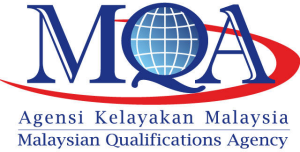Related Research Articles

Vocational education is education that prepares people to a skilled craft as an artisan, trade as a tradesperson, or work as a technician. Vocational Education can also be seen as that type of education given to an individual to prepare that individual to be gainfully employed or self employed with requisite skill. Vocational education is known by a variety of names, depending on the country concerned, including career and technical education, or acronyms such as TVET and TAFE.

Undergraduate education is education conducted after secondary education and before postgraduate education. It typically includes all postsecondary programs up to the level of a bachelor's degree. For example, in the United States, an entry-level university student is known as an undergraduate, while students of higher degrees are known as graduate students. Upon completion of a number of required and elective courses as part of an undergraduate program, the student would earn the corresponding degree. In some other educational systems, undergraduate education is postsecondary education up to and including the level of a master's degree; this is the case for some science courses in Britain and some medicine courses in Europe.
A Fachhochschule, abbreviated FH, is a university of applied sciences (UAS), in other words a German tertiary education institution that provides professional education in many applied sciences and applied arts, such as engineering, technology, business, architecture, design, and industrial design.

An engineering technologist is a professional trained in certain aspects of development and implementation of a respective area of technology. An education in engineering technology concentrates more on application and less on theory than does an engineering education. Engineering technologists often assist engineers; but after years of experience, they can also become engineers. Like engineers, areas where engineering technologists can work include product design, fabrication, and testing. Engineering technologists sometimes rise to senior management positions in industry or become entrepreneurs.
A diploma mill is a company or organization that claims to be a higher education institution but provides illegitimate academic degrees and diplomas for a fee. The degrees can be fabricated (made-up), falsified (fake), or misrepresented. These degrees may claim to give credit for relevant life experience, but should not be confused with legitimate prior learning assessment programs. They may also claim to evaluate work history or require submission of a thesis or dissertation for evaluation to give an appearance of authenticity. Diploma mills are frequently supported by accreditation mills, set up for the purpose of providing an appearance of authenticity. The term may also be used pejoratively to describe an accredited institution with low academic admission standards and a low job placement rate. An individual may or may not be aware that the degree they have obtained is not wholly legitimate. In either case, legal issues can arise if the qualification is used in resumes.

The Republic of Austria has a free and public school system, and nine years of education are mandatory. Schools offer a series of vocational-technical and university preparatory tracks involving one to four additional years of education beyond the minimum mandatory level. The legal basis for primary and secondary education in Austria is the School Act of 1962. In 1963 it went back to the way it was. However, in 1999 it finally changed again. The Federal Ministry of Education is responsible for funding and supervising primary, secondary, and, since 2000, also tertiary education. Primary and secondary education is administered on the state level by the authorities of the respective states.

Private universities and private colleges are institutions of higher education, not operated, owned, or institutionally funded by governments. They may receive from governments tax breaks, public student loans, and grants. Depending on their location, private universities may be subject to government regulation. Private universities may be contrasted with public universities and national universities. Many private universities are nonprofit organizations.

The educational system in Nepal was long based on home-schooling and gurukulas. This was similar to the former Indian system of education, in which the pupils would learn either in their homes or with reputed priests or Gurus. Before Nepal was declared a democratic country, the general public had no access to formal education. The first formal school, Durbar High School, established by Jung Bahadur Rana in 1853, was intended for the elite. The birth of Nepalese democracy in 1951 opened its classrooms to a more diverse population. Education in Nepal from the primary school to the university level has been modeled from the very inception on the Indian system, which is in turn the legacy of the old British Raj.
The Oregon Office of Degree Authorization (ODA) is a unit of the Office of Student Access and Completion, with responsibilities related to maintaining high standards in private higher education institutions in Oregon. ODA administers laws and provides oversight of private colleges and universities offering degree programs in the state, validates individual claims of degrees, enforces the closure of substandard or fraudulent higher education programs in the state, and enforces policy for publicly funded postsecondary programs and locations. It was formerly a unit of the Oregon Student Access Commission (OSAC), which became Oregon Student Assistance Commission prior to January 1, 2012. Its functions moved to the Oregon Higher Education Coordinating Commission as part of the Office of Student Access and Completion in July 2012.
The Validation or recognition of foreign studies and degrees is the process whereby a competent authority in one country formally recognises the value of a qualification from a foreign country. This can entail total or partial validation of foreign university and non-university studies, degrees and other qualifications. Particularly within Europe, this is covered by a number of international conventions and agreements.
Unaccredited institutions of higher education are colleges, trade schools, seminaries, and universities which do not have formal educational accreditation.

The Malaysian Qualifications Agency is a statutory body in Malaysia set up under the Malaysian Qualifications Act 2007 to accredit academic programs provided by educational institutions providing post secondary or higher education and facilitate the accreditation and articulation of qualifications.
The Kultusministerkonferenz is the assembly of ministers of education of the German states. The body is not part of the federal government, and its directives do not immediately become effective, but first will have to be turned into state law.
Brazil adopts a mixed system of public and privately funded universities. Public universities can be federally funded or financed by State governments. Private schools can be for-profit or, in the case of Catholic universities, not-for-profit.

The Deutsches Sprachdiplom der Kultusministerkonferenz (engl.: German Language Certificate of the Education Ministers Conference) is an official German language certificate of the German education authorities and the Foreign Office (Germany) certifying levels of knowledge of the German language in schools worldwide. The program, originally intended to stimulate interest in German, has run since 1973 and, different from the equivalent certificates of the Goethe Institute, is meant for students at officially recognized schools abroad, either Diploma schools or German Schools Abroad. The program prepares the participants for a study in Germany in matters of language and cultural issues. It finishes with an exam and a certification on language competencies on level A2/B1 or B2/C1 of the Common European Framework of Reference for Languages. The certificate together with national school leaving examinations entitles foreign students to apply for university entry in Germany.
Higher education accreditation is a type of quality assurance process under which services and operations of post-secondary educational institutions or programs are evaluated to determine if applicable standards are met. If standards are met, accredited status is granted by the agency.
International Teaching University of Georgia is a multidisciplinary University in Georgia. International Teaching University of Georgia is the new name of the institution as of 2016. From 2017 on, the University will have its new name fully implemented. Its present name of Tbilisi Teaching University Gorgasali will then disappear.
References
- ↑ "ANABIN: Neue Datenbank der Kultusministerkonferenz über ausländische Bildungssysteme im Netz". Kultusministerkonferenz. 2002-02-26. Retrieved 2017-12-09.
- ↑ "General Information about Recognition". www.kmk.org. Retrieved 2022-02-21.
- ↑ "Anerkennung in Deutschland - Success stories". Anerkennung in Deutschland - Success stories. Retrieved 2022-02-21.
- ↑ "Certificate of Equivalence". www.kmk.org. Retrieved 2022-02-21.